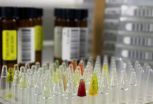(Press-News.org) COLUMBIA, Mo. – About 73 percent of online American teens use social networking sites, such as Facebook, to share photos, interests and experiences with others, according to Pew Research Center. For youths in the foster care system, sharing information online presents additional safety and privacy issues. A University of Missouri researcher recommends that child welfare agencies develop policies to guide how adolescents in foster care use social media.
Dale Fitch, an assistant professor in the MU School of Social Work, says agencies usually advocate restricting how youths in the foster system use social media in order to avoid potential liabilities that could result in lawsuits. However, like other teens who ignore adults' instructions concerning information disclosure online, teens in foster care turn to the Internet to express their identities and share their stories. Social media is a positive tool that helps adolescents in foster care connect with society, but the lack of guidelines leaves them at risk for cyber-bullying, unintentional disclosure of identifying information and personal harm, Fitch said.
"Foster parents and caseworkers might tell teens not to use Facebook, but they're using it anyway, which opens them up to negative consequences," Fitch said. "They need to be able to share instances of unwanted social media contact with their guardians, and they might not reveal information if they've been told not to use Facebook."
Extensive policies regulate how records of youths in the foster system are shared with others such as foster parents, school personnel, health care professionals and caseworkers, so encouraging teens in foster care to use the Internet allows them a sense of privacy and control over their own information, Fitch said.
"Although adolescents in foster care are very much aware of their own safety issues and are very protective of their foster families and biological siblings, they may not know the implications of sharing information online," Fitch said. "Working with them to safely use social media is a huge step."
Additionally, allowing youths in foster care to use social media could give their caretakers insight into the youths' lives they might not have otherwise, which could help adults identify development issues, Fitch said.
"If adolescents have few friends on Facebook, foster parents need to find out whether they have other, hidden online profiles or if they're having problems making friends," Fitch said. "Adults could learn a lot more about what's going on in the teens' lives and what they're thinking about. Those conversations happen on a limited basis now."
Fitch used a tool called Critical Systems Heuristics to create a framework child welfare agencies can use to develop privacy guidelines to ensure the safe use of social media. He says youths in the foster system should be included in the policy-making process in addition to child welfare workers, foster parents or guardians, juvenile officers and judges.
The paper, "Youth in Foster Care and Social Media: A Framework for Developing Privacy Guidelines," was published in the Journal of Technology in Human Services. The School of Social Work is part of the MU College of Human Environmental Sciences.
INFORMATION:
Adolescents in foster care require guidelines for safe social media use, MU expert says
Children could put themselves at risk for privacy loss, cyber-bullying
2012-09-05
ELSE PRESS RELEASES FROM THIS DATE:
Tumor suppressor genes vital to regulating blood precursor cells in fruit flies
2012-09-05
UCLA stem cell scientists have shown that two common tumor suppressor genes, TSC and PTEN, are vital to regulating the stem cell-like precursor cells that create the blood supply in Drosophila, the common fruit fly.
The researchers examined a signaling pathway called TOR that the cells use to gauge nutrition levels and stress, said study senior author Dr. Julian A. Martinez-Agosto, an assistant professor of human genetics and pediatrics and a researcher with the Eli and Edythe Broad Center of Regenerative Medicine and Stem Cell Research at UCLA.
"We wondered how an ...
Ecosystems cope with stress more effectively the greater the biodiversity
2012-09-05
Higher average temperatures and increasing salt concentrations are stress factors that many ecosystems face today in the wake of climate change. However, do all ecosystems react to stress in the same way and what impact does stress have on ecosystem services, such as biomass production? Botanists and ecologists from the universities of Zurich and Göttingen demonstrate that a high level of biodiversity aids stress resistance.
Higher number of species leads to greater stress resistance
The scientists studied a total of 64 species of single-celled microalgae from the SAG ...
Kessler Foundation releases preliminary research findings for Ekso in spinal cord injury
2012-09-05
West Orange, NJ. September 5, 2012. Kessler Foundation has released preliminary research findings from its clinical study of the wearable robotic exoskeletal device, Ekso (Ekso Bionics). Gail Forrest, PhD, assistant director of Human Performance and Engineering Research, presented the Ekso research data on September 3, at the meeting of the Academy of Spinal Cord Injury Professionals at the Rio Suites in Las Vegas. Dr. Forrest directs mobility research at the Foundation, including activity-based locomotor therapy, functional electrical stimulation, and treadmill training ...
Possible new therapy for the treatment of a common blood cancer
2012-09-05
Research from Karolinska Institutet in Sweden shows that sorafenib, a drug used for advanced cancer of the kidneys and liver, could also be effective against multiple myeloma. The disease is one of the more common forms of blood cancer and is generally incurable.
"Recently developed drugs, like bortezomib, have increased the survival rate for people with this serious and complex disease," says study leader Theocharis Panaretakis, docent of experimental oncology. "Having said this, the heterogeneity of the disease progression, the treatment response and the development ...
Brainy beverage: Study reveals how green tea boosts brain cell production to aid memory
2012-09-05
It has long been believed that drinking green tea is good for the memory. Now researchers have discovered how the chemical properties of China's favorite drink affect the generation of brain cells, providing benefits for memory and spatial learning. The research is published in Molecular Nutrition & Food Research.
"Green tea is a popular beverage across the world," said Professor Yun Bai from the Third Military Medical University, Chongqing, China. "There has been plenty of scientific attention on its use in helping prevent cardiovascular diseases, but now there is emerging ...
Can videogaming benefit young people with autism spectrum disorder?
2012-09-05
New Rochelle, NY, September 5, 2012—According to the Centers for Disease Control and Prevention (CDC), 1 in 88 children in the U.S. has autism spectrum disorder (ASD), a broad group of neurodevelopmental disorders. Children and adolescents with ASD are typically fascinated by screen-based technology such as videogames and these can be used for educational and treatment purposes as described in an insightful Roundtable Discussion published in Games for Health Journal: Research Development, and Clinical Applications, a peer-reviewed publication from Mary Ann Liebert, Inc.. ...
Trout will become extinct in the Iberian Peninsula in less than 100 years
2012-09-05
Climate change, pollution, the extraction of water for irrigation and overfishing all threaten the survival of the common trout. This fish is very sensitive to changes in its environment and, according to the Spanish study, its habitat will have reduced by half by the year 2040 and will have completely disappeared from Iberian rivers by 2100, so its population will become extinct.
Global warming is threatening the existence of many fish species, especially those in the salmonid family, which are sensitive to temperature changes as they require clear and fresh water to ...
Infections in rheumatoid arthritis patients: Mayo Clinic study finds way to pinpoint risk
2012-09-05
ROCHESTER, Minn. -- Rheumatoid arthritis alone is painful and disabling, but it also puts patients at higher risk of death. The greater susceptibility to infections that accompanies the autoimmune disorder is one reason. Assessing the danger of infection a particular patient faces so it can be addressed can prove challenging for physicians. A Mayo Clinic study finds that a risk score can be developed to predict a patient's chances of having serious infections. The score uses information about how rheumatoid arthritis is affecting a patient, plus factors including age, corticosteroid ...
Epigenetic causes of prostate cancer
2012-09-05
This press release is available in German.
In about half of all prostate tumours, there are two genetic areas that are fused with one another. When this is not the case, the exact way cancer cells originate in prostate tumours was not clear until now. Scientists at the Max Planck Institute for Molecular Genetics in Berlin, in cooperation with a team of international researchers, were able to show that the genesis of this fusion-negative prostate cancer has epigenetic causes: methyl groups are distributed differently over the DNA in the cancer cells than in healthy cells. ...
Harnessing anticancer drugs for the future fight against influenza
2012-09-05
Medical Systems Virology group at the Institute for Molecular Medicine Finland (FIMM) at the University of Helsinki, together with its national and international collaborators, developed a new cell screening method that can be used to identify potential anti-influenza drugs. The researchers were able to identify two novel compounds with anti-influenza activity, obatoclax and gemcitabine and prove the efficacy of a previously known drug saliphenylhalamide.
The study was recently accepted for publication in the Journal of Biological Chemistry and is now available online.
Influenza ...
LAST 30 PRESS RELEASES:
New “lock-and-key” chemistry
Benzodiazepine use declines across the U.S., led by reductions in older adults
How recycled sewage could make the moon or Mars suitable for growing crops
Don’t Panic: ‘Humanity’s Last Exam’ has begun
A robust new telecom qubit in silicon
Vertebrate paleontology has a numbers problem. Computer vision can help
Reinforced enzyme expression drives high production of durable lactate-based polyester
In Rett syndrome, leaky brain blood vessels traced to microRNA
Scientists sharpen genetic maps to help pinpoint DNA changes that influence human health traits and disease risk
AI, monkey brains, and the virtue of small thinking
Firearm mortality and equitable access to trauma care in Chicago
Worldwide radiation dose in coronary artery disease diagnostic imaging
Heat and pregnancy
Superagers’ brains have a ‘resilience signature,’ and it’s all about neuron growth
New research sheds light on why eczema so often begins in childhood
Small models, big insights into vision
Finding new ways to kill bacteria
An endangered natural pharmacy hidden in coral reefs
The Frontiers of Knowledge Award goes to Charles Manski for incorporating uncertainty into economic research and its application to public policy analysis
Walter Koroshetz joins Dana Foundation as senior advisor
Next-generation CAR-T designs that could transform cancer treatment
As health care goes digital, patients are being left behind
A clinicopathologic analysis of 740 endometrial polyps: risk of premalignant changes and malignancy
Gibson Oncology, NIH to begin Phase 2 trials of LMP744 for treatment of first-time recurrent glioblastoma
Researchers develop a high-efficiency photocatalyst using iron instead of rare metals
Study finds no evidence of persistent tick-borne infection in people who link chronic illness to ticks
New system tracks blockchain money laundering faster and more accurately
In vitro antibacterial activity of crude extracts from Tithonia diversifolia (asteraceae) and Solanum torvum (solanaceae) against selected shigella species
Qiliang (Andy) Ding, PhD, named recipient of the 2026 ACMG Foundation Rising Scholar Trainee Award
Heat-free gas sensing: LED-driven electronic nose technology enhances multi-gas detection
[Press-News.org] Adolescents in foster care require guidelines for safe social media use, MU expert saysChildren could put themselves at risk for privacy loss, cyber-bullying



